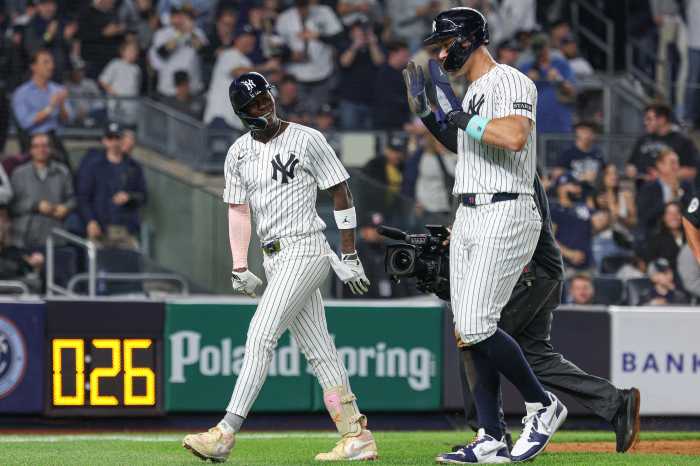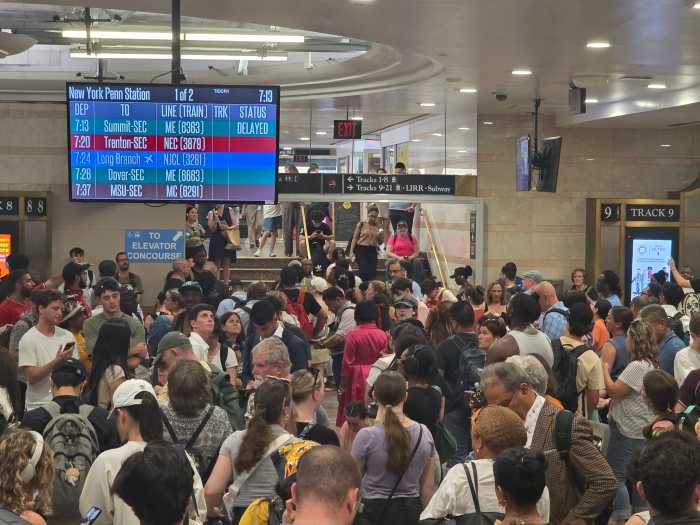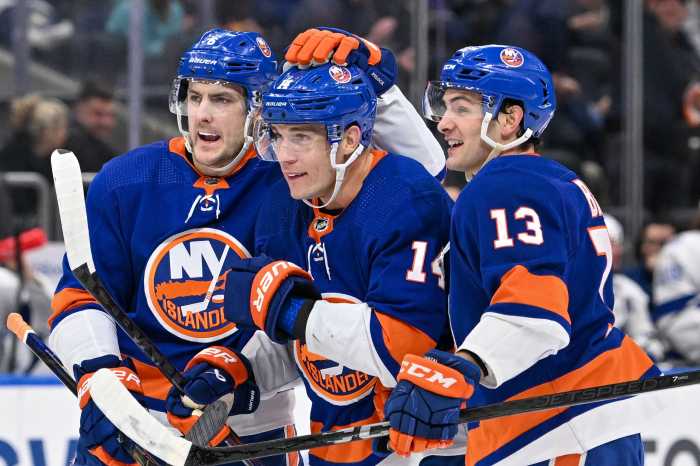TROON, Scotland — It doesn’t get any better than this, a golf championship in the land where the game was born, with two players, one of the game’s best, the other trying after years to break through, throwing caution to the considerable wind and birdies at each other in a repetitive display of brilliance and excitement.
Henrik Stenson finished in front, with Phil Mickelson second. Sport was the winner. There were no losers.
They were tied, these two veterans, the 40-year-old Stenson, about to become the first Swedish male to win a major, to snare the 145th British Open at Royal Troon, and the 46-year-old Mickelson, unable to become the oldest champion in 149 years. They both shot 4 under par on the front nine in the final round. Then Stenson, who had finished second to Mickelson in the Open three years ago, took over late. He rolled in a birdie at 14. And at 15 another birdie. And at 16 another birdie. Then, closing out with a flourish as champions are supposed to close, he birdied the 18th, shooting 63 — which Mickelson did in the opening round — for a tournament-record 264, 20 under par.
Mickelson, somewhat shaken, had a birdie at 16, barely missing an eagle putt, and shot 6-under 65. On many days, that would have been more than enough. But this gray, damp Sunday on the Firth of Clyde wasn’t just any day, and Mickelson’s 267 score, equaling the Open mark set by Greg Norman in 2003 at Royal St. George’s in England, was short of Stenson’s mark.
“It was disappointing to come in second,” said Mickelson, a friend of Stenson’s. “But I’m happy for Henrik. I don’t remember being in a match like that where we separated ourselves from the field by so many strokes. It’s probably the best I’ve played and not won.”
And the best maybe anyone has played, as Stenson, to win. He had 10 birdies, only two bogeys — the first and 11th holes, both three-putts.
“I’m very proud of the way I played,” Stenson said. “I knew he wasn’t going to back down at any point. I knew I had to keep on pushing, I [thought] this was going to be my turn.”
The battle was reminiscent of that in the final round of the 1977 Open between Tom Watson and Jack Nicklaus some 25 miles down the Ayrshire Coast at Turnberry. That one, in which Watson shot 65-65 the last two days to win by one over Jack, who shot 65-66, was known as Duel in the Sun. But with the weather Sunday here, we’ll label it Duel in the Mist.
“Why it’s disappointing,” Mickelson said, “is I don’t have a point where I can look back and say I should have done that or if I only had done this
“I played bogey-free golf and got beat. I got beat by 10 birdies. It’s not the other guys were out there doing the same thing. It was a challenging game.”
In effect there were no other guys. J.B. Holmes came in third, 14 shots behind Stenson and 11 behind Mickelson. One thing Stenson did was short-circuit a very long streak. Americans had won the previous six Opens at Troon.
There’s no defense in golf. You can’t walk the top batter, can’t play prevent against the receivers going deep. You just have to outperform the opponent. Stenson did. Mickelson was unable.
“I was just trying to keep pace,” Mickelson said. “I was just thinking I needed to knock mine in on top of him. I had 30-, 40-footers, and wasn’t able to do it there in the end.”
Second best
Phil Mickelson is second to only Jack Nicklaus for most runner-up finishes at majors.
19 Jack Nicklaus
11 Phil Mickelson
10 Arnold Palmer
8 Greg Norman
Sam Snead
Tom Watson




































